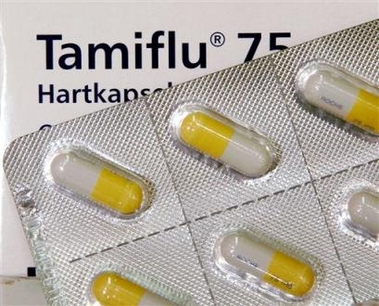Top News
WHO puts Tamiflu maker on bird flu alert
(AP)
Updated: 2006-05-27 17:00
 |
Large Medium Small |
The World Health Organization has for the first time asked the maker of the anti-bird flu drug Tamiflu to ready the global stockpile after human-to-human transmission was suspected in a family in Indonesia.
 Tamiflu pills in Frankfurt, central Germany, Wednesday, March 15, 2006. The World Health Organization has for the first time asked the maker of the anti-bird flu drug Tamiflu to ready the global stockpile after human-to-human transmission was suspected in a family cluster in Indonesia, a WHO official said Saturday May 27, 2007. [AP] |
But WHO officials stressed Saturday that there was no need to ship the stockpile or take further action.
"We have no intention of shipping that stockpile," said Dick Thompson, WHO spokesman. "We see this as a practice run."
The WHO in Jakarta received word from the Indonesian Health Ministry on Monday about a human cluster in Kubu Simbelang village in North Sumatra. That prompted the Geneva-based global health organization to put Swiss drug maker Roche Holding AG on alert, said Jules Pieters, director of WHO's rapid response and containment group in Geneva.
"We were quite keen to inform Roche quite timely, we knew Thursday would be a holiday in Europe and wanted to make sure Roche warehouses would be open," he said.
Pieters said the move was part of standard operating procedure when WHO has "reasonable doubt" about a situation that could involve human-to-human transmission.
Pieters said 9,500 treatment doses along with protective gear were flown into Indonesia as a precaution on Friday. The shipment took about 72 hours to arrive.
Six of the seven members of an extended Indonesian family who caught bird flu have died, the most recent on Monday. An eighth family member who died was buried before tests could be done, but she was considered to be among those infected with bird flu.
The WHO has stressed the virus has not mutated into a version easily passed between people or shown any sign of spreading outside the family — all blood relatives who had very close contact with each other.
Pieters said Roche would remain on alert for approximately the next two weeks, or twice the incubation period of the last reported case.